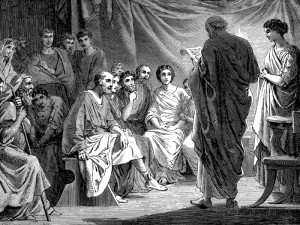‘catholicity’ – Institutional, Incarnational, or Impossible
‘catholicity ‘(small ‘c’) is used in at least two ways among non-Roman Catholics: 1) the spiritual unity of the universal church, i.e. the unity of all believers in the gospel of Jesus Christ; 2) the continuity of a particular church group with the apostolic church. Wikipedia offers this explanation of the second definition of catholicity:
The Eastern Orthodox, Oriental Orthodox, Anglicans, Lutherans and some Methodists believe that their churches are catholic in the sense that they are in continuity with the original universal church founded by the Apostles. The Roman Catholic, Eastern Orthodox, and Oriental Orthodox churches all believe that their church is the only original and universal church. In “Catholic Christendom” (including the Anglican Communion), bishops are considered the highest order of ministers within the Christian religion, as shepherds of unity in communion with the whole church and one another (http://en.wikipedia.org/wiki/Catholicity). Continue reading “‘catholicity’ – Institutional, Incarnational, or Impossible”

